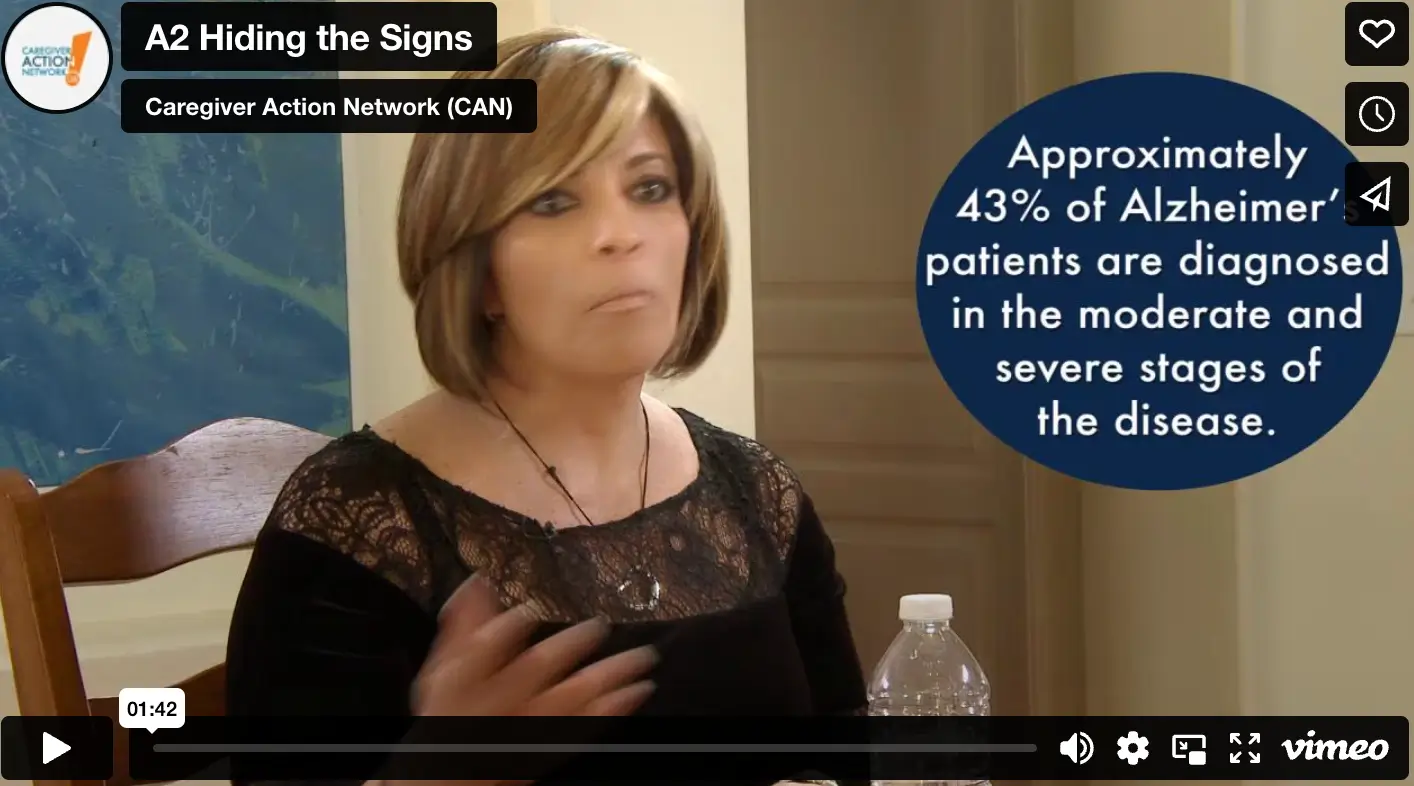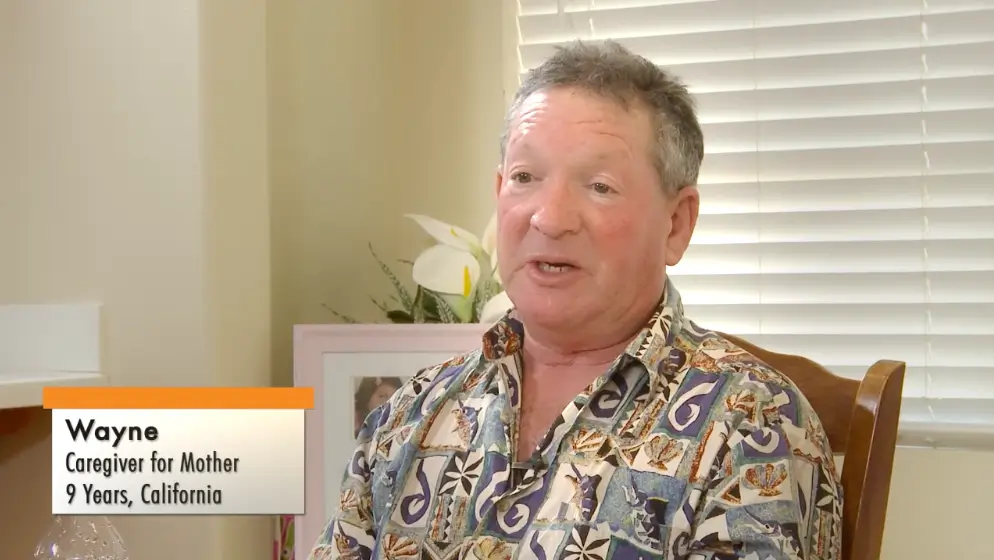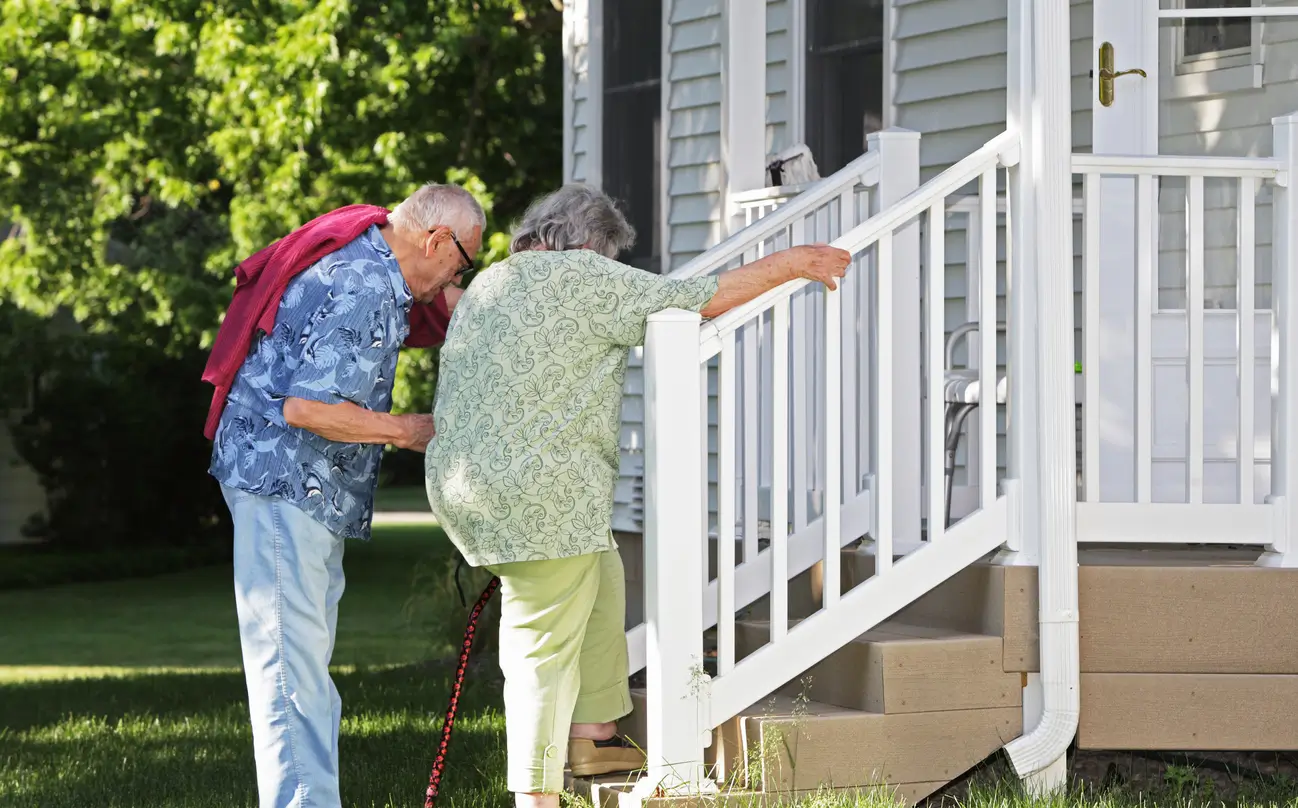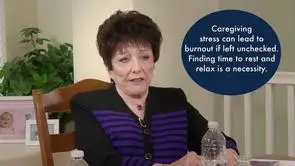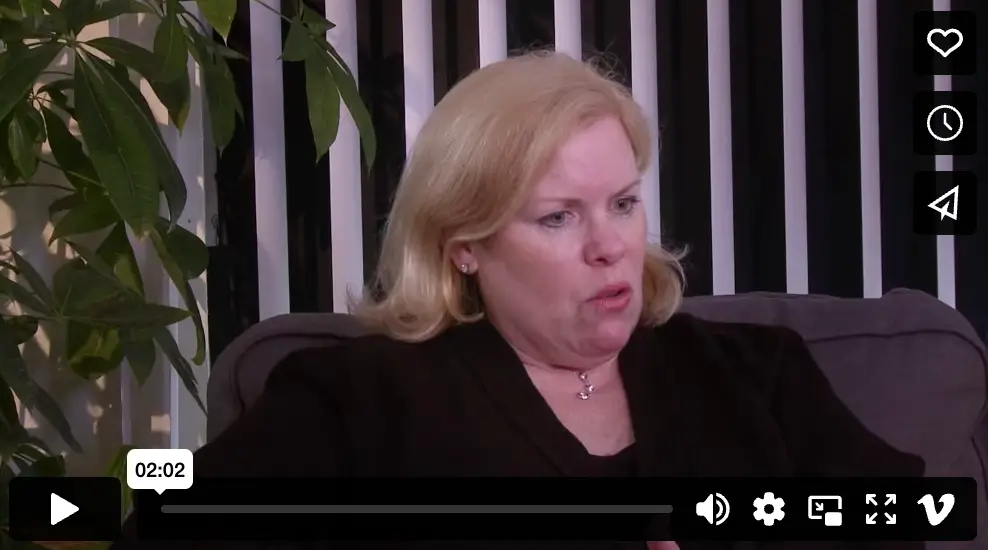Judith, Caregiver for Mother, 4 Years, Texas:
I think my most difficult conversation would be telling my mom why she had to be in the nursing home versus staying home with me, because she knows I have a room for her when she visits, but when she asked me, “Well, why can’t I come home with you?”, you know, it breaks my heart, but it’s like, “Mom, I’ve got to work.” Or, “Mom, I’ve got a husband, and I’ve got a job.”
32% of Alzheimer’s disease caregivers have been providing care for more than five years.
Wayne, Caregiver for Mother, 9 Years, California:
The first week or two was hard cause I think I was kinda feeling that guilt of what have I done, I’ve taken away her independence, I’ve robbed her of her humanity, but as time has started to progress my mind is easing knowing that because my mental health is better now, I can really concentrate on the good things for her…
Claudia, Caregiver for Mother, 12 Years, Texas:
That was hard. That was hard in the beginning when I put her in the nursing home. She would say — the first day when I took her, she said — I’m gonna cry — she said, “You’re not gonna just drop me off, are you?” I said, “Mother, absolutely not.” So for two weeks I was there every day, every day, every day, every day. And they said, “Claudia, you don’t have to come here every day.” And I said, “Oh, yes, I do.” I said, “I need to know that my mother is secure and comfortable, and is not going to be frightened when I leave.”
Joanne, Caregiver for Husband, 5 Years, California:
I think you pointed about the guilt feeling only by what people were asking you, and that’s what my biggest problem has been. I still have guilt feelings about him being in this home and I think I should be taking care him.
64% of Medicare beneficiaries aged 65 and older living in a nursing home have Alzheimer’s disease or other dementias.
Wayne, Caregiver for Mother, 9 Years, California:
… but I keep telling myself had I not put my mother in a boarding care and had she fallen down the stairs or wandered outside and gotten lost and gotten hit by a car, how much more guilty would I have felt then, and you might want to think about that whenever you have those pains of guilt that you know, that you’re husband is really in a safe place now.
Dalel, Caregiver for Husband, 5 Years, California:
So having that feeling that you cannot leave him alone, that you cannot leave the house. It was taking our lives away…
Vivian, Caregiver for Father, 4 Years, Pennsylvania:
…they’re like a child. Only you can’t pick this child up and change them and put their clothes on and put them in the bathroom. You physically can’t do that because they’re not the 20 pound child, or the 30 pound child. They’re the 180 pound child that you’re going to need assistance.
Judith, Caregiver for Mother, 4 Years, Texas:
If you ever have to make that decision where it’s just too much for you, first you have to come to the serenity that it’s the right thing for you to take care of him in the best way, because there may be a point you can’t lift him, or you can’t turn him to change him as much as he needs to be changed. Whenever that time comes, you have to find a peace enough to be able to do it for him, and then ultimately for you too.








